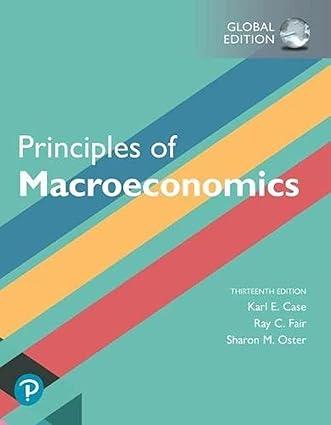Before we attempt to explain the workings of an economy, it is worthwhile to see the impact
Question:
Before we attempt to explain the workings of an economy, it is worthwhile to see the impact of the decisions and operations of individual firms. We need to understand why some companies elect to move part or most of their manufacturing work abroad, even if at the risk of higher shipping costs and manufacturing delays. We need to understand why governments tolerate this behavior even if it deprives their economies of jobs and income.
No nation can operate as a closed economic system that produces all goods or resources necessary for the production of goods and services. Since early times, various nations of the world have exchanged resources and products through trade. But to defend their economies from foreign competition, governments have been protecting domestic industries using tariffs and quotas on imports as well as with restrictions on exporting essential capital equipment and factors of production. The peacekeeping aspiration after World War II made it imperative to move the modern world towards a more cooperative and liberalized trade system. Nations started to sign multilateral free trade agreements (FTAs) in tandem with bilateral, local, and regional FTAs. By 2016–2017 the volume of global trade reached nearly €13 trillion, as reported by the World Trade Organization.
The European Union (EU) is the largest single market in the world. EU legislation allows its manufacturers to claim items assembled in their country as their own products. Let us take the case of auto producer Ferrari, the flagship of Italian automobile industry. Ferrari has earned itself the reputation of the leading brand, especially in Formula One (F1) auto racing championships, as it has achieved the highest number of F1 championships and produced the largest number of winning drivers. Some would assume that every single component of Ferrari sports cars is from Italy since it carries the sign “Made in Italy.” However, contrary to popular belief, Ferrari parts are produced outside Italy, assembled at the legendary Maranello factory, labeled “Made in Italy,” and then either sold in Italy or exported. While most of the engine is manufactured in Italy, Ferrari uses Japanese NGK spark plugs, German Mahle turbo engine components, and American Goodyear tyres. Domestic protection activists supporting Italian manufacturers have argued that by outsourcing these parts, Ferrari moves jobs from Italy to Japan, Germany, and USA. They claim that the success of companies such as Ferrari comes at the expense of the Italian workforce, which in turn hurts Italy’s economy.
As you can see, the line between “made” and “assembled” is rather blurred. Consumers do not mind if domestic firms outsource production to foreign producers as long as they provide better quality products at lower prices. So, the next time you see a label that reads “Made in Italy,” keep in mind that from an economics point of view, you may need to dig a little deeper to see what is really going on.

Question
What are the factors that could drive manufacturers’ decisions to outsource manufacturing to foreign countries?
Step by Step Answer:

Principles Of Macroeconomics
ISBN: 9781292303826
13th Global Edition
Authors: Karl E. Case,Ray C. Fair , Sharon E. Oster





